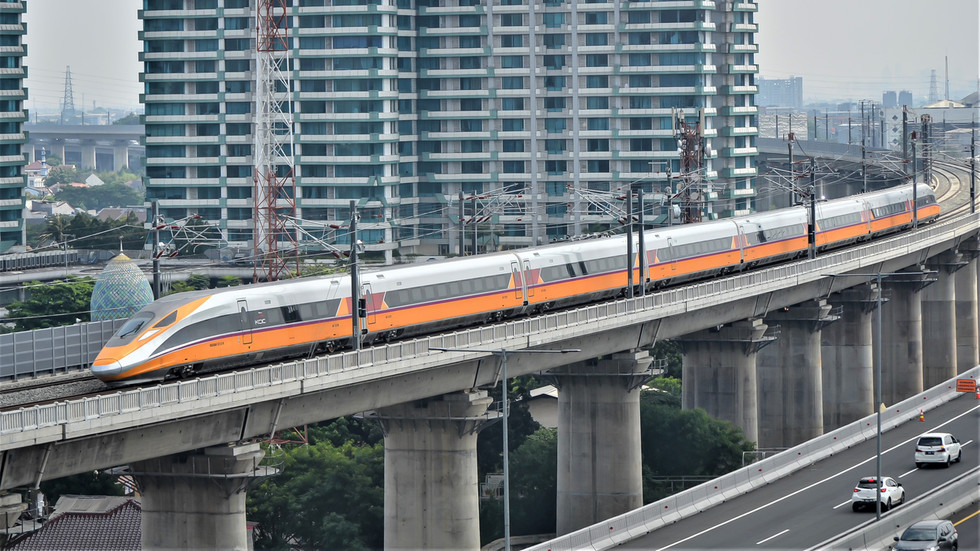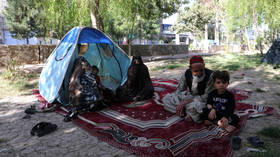
Afghanistan’s government wants to join Chinese-led infrastructure initiatives

FILE PHOTO: A high-speed train on the Jakarta — Bandung VSM railway in Indonesia, a major Belt and Road Initiative project © Wikipedia
The Taliban government of Afghanistan has asked for membership of China’s Belt and Road Initiative (BRI) and will send a technical team to Beijing to negotiate access, its acting Commerce Minister Haji Nooruddin Azizi said on Thursday.
Kabul sent a delegation to the Belt and Road Forum in Beijing, which wrapped up on Wednesday. Afghanistan was among the 35 countries that signed an agreement on the digital economy and green development on the sidelines of the summit.
“We requested China to allow us to be a part of the China-Pakistan Economic Corridor and Belt and Road Initiative,” Azizi told Reuters. The corridor is a major part of the BRI, China’s major infrastructure undertaking in Asia that seeks to facilitate international trade and commerce.
An Afghan technical team will go to China to “better understand” the remaining obstacles to joining the initiative, Azizi said, without giving any additional specifics.
“China, which invests all over the world, should also invest in Afghanistan… we have everything they need, such as lithium, copper and iron,” Azizi told Reuters. “Afghanistan is now, more than ever, ready for investment.”

Read more
Several Chinese companies already operate in Afghanistan, mainly in mineral extraction. The Metallurgical Corp. of China Ltd (MCC) has been negotiating with the Taliban about setting up a major copper mine.
“The Chinese company has made a huge investment, and we support them,” said Azizi, explaining that the talks have experienced delays because the mine would be located near a historical site.
China appointed a new ambassador to Kabul last month, becoming the first country to do so after the Taliban takeover in August 2021. The previous, US-backed government had surrendered without much of a fight even before the last American troops left Afghanistan.
The US has since frozen $7 billion in Afghan central bank funds stored at the Federal Reserve Bank of New York. Another $2 billion kept in the UK, Germany, the UAE, and several other countries was frozen as well.




